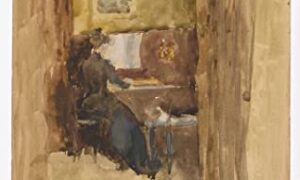 After the Parade by Lori Ostlund
After the Parade by Lori Ostlund
My rating: 5/5 cats





As he stood waiting for the elevator car to tremble and plunge, he began to have what he thought were panic attacks, but these, too, he approached like a Midwesterner, which meant that while everything exploded inside him, from the outside he looked like a man stoically riding the elevator.
this is an amazingly beautiful novel, cataloging the entire spectrum of loneliness. ostlund is a master storyteller, and her characters and situations are touching and raw and honest. when you reduce the novel to its barest elements, it doesn’t sound like anything special: aaron, a man in his early forties, leaves walter, his (significantly older) partner after more than twenty years and moves to san francisco where he takes stock of his life, confronts the haunting memories of his childhood in minnesota, and examines his relationship with his parents and walter as he determines what to do with the rest of his life. i mean, a midlife crisis novel? seriously? and yet it is so much more than that.
as the narrative moves back and forth in time, through aaron’s memories and his starting over in san francisco, it highlights the fact that a person’s coming of age can occur at any stage in life, and may actually happen several times. his father’s death, his mother’s disappearance, walter’s rescuing and reshaping of him when he was still a teenager, the uncovering of family secrets and forgotten wounds, and all the similarly lonely people he meets across his life – every person leaves a mark, even if he isn’t emotionally mature enough to realize it at the time.
aaron is someone very removed from his own emotional landscape. he watches old men every day at a diner, too intimidated to approach them, giving them names and listening to their stories, reminding himself: Do not become comfortable with loneliness, but unable to heed his own advice. on the night before he leaves walter, his concern is less for walter himself than the neighborhood cats he has named like the old diner men and has greeted every evening on his nightly walks, and also for an older neighbor woman who used his walks as opportunities to bring him stuck jars; a sweetly melancholy attempt at human contact, who would laugh at his jokes the way that people who are very lonely laugh, paying you the only way they know how.
this is what troubles him as he leaves his partner of twenty years:
when he let his mind stray to the future, to the next night and the one after, the thought of Mrs. Trujillo looking out the window with a stubborn jar of spaghetti sauce in her hands made his heart ache.
and there is so much ache in this novel as aaron leaves new mexico for san francisco where he teaches esl to adult students in a third-rate school and lives in the garage of a constantly-squabbling couple, alone in all the noise of someone else’s problems. aaron maintains a relationship with walter’s sister winnie, and even though he sometimes feels closer to her than he did to walter, he still misses walter and the influence he had in aaron’s life, and this missing makes room for a resurgence of missing of his mother, who disappeared with a pastor one night when aaron was seventeen, after years of sorrow and sacrifice and illness and grief. and dwelling on her means dwelling on the death of his abusive policeman father who fell off a parade float in minnesota when aaron was five. so the novel spins into different sorrow-orbits, but it’s never bleak – it’s all pensive wistfulness and healing mourning, beautifully depicted.
it’s very simply done, but in that “making it look effortless” way that is not at all effortless. it’s a drawn-out character study that can get a bit episodic with all of the shiningly meaningful secondary characters, and it edges into “oh no, this could be whimsical” territory, but i dare you to not fall in love with clary, the tusked dwarf and his eyeless cat. i know. but trust me, it ain’t as quirky as it sounds.
it’s a very powerful debut that i don’t want to tarnish any more with my dumb thoughts. sometimes you just have to put a book out there and quietly say “this is good” and let people come to it on their own.
so – this is good.







